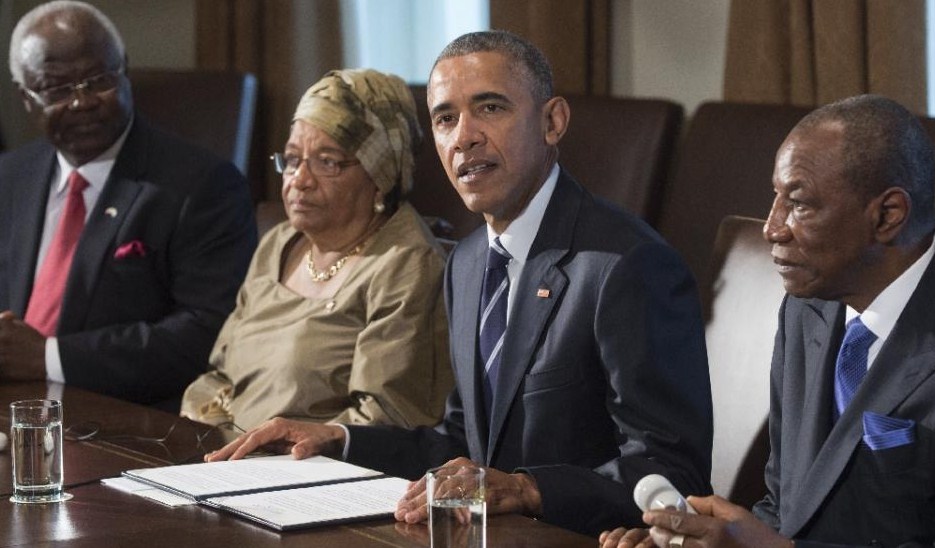President Obama meets with leaders of Ebola-stricken countries

By Jibril Ture
At the White House on Wednesday, President Obama met with the heads of state of the three West African countries hardest hit by the Ebola epidemic, Liberia’s president Ellen Johnson Sirleaf; President Ernest Bai Koroma of Sierra Leone; and their Guinean counterpart Alpha Conde. The leaders were in Washington to hold talks with various institutions in an effort to seek financial support to rebuild their economies that have been severely shaken by the epidemic.
“We begin by noting the incredible losses that took place in all three countries,” President Obama said to kick off the meeting, in reference to the death toll estimated at more than 10,000. He added: “On behalf of the American people, we want to express our deepest condolences to the families and recognize how challenging this has been for all the countries involved.” The president went on to express his renewed support to help prevent future outbreaks. “We stand shoulder to shoulder with them, to work hard to take this crisis and turn it into an opportunity to rebuild even stronger than before,” President Obama also said.
After praising the “great courage and resolve” of the three leaders, Obama said he’s proud the United States has led the international efforts to work with the three affected nations.
Although the worse seems to be over, with only 40 cases noted last week by health officials—the lowest number since the epidemic broke out two years ago—President Obama stated, echoing the statements made by the West African leaders in other occasions: “Now we’re focused on a shared goal, and that is getting to zero. We can’t be complacent. This virus is unpredictable.”
Obama also pointed out the devastating economic impact on the three West African nations whose leaders are in Washington to meet with international institutions including the IMF and World Bank to request a much-needed economic aid.
During a European Union-backed conference in Brussels last month, the three West African leaders called for a Marshal Plan to recover from the dire economic consequences of the crisis on their countries.
“The impact of Ebola on our economies has been profound,” Liberian president, Ellen Johnson Sirleaf, then told the international audience. “The most important long-term response to Ebola therefore rests in plans and strategies for economic recovery,” she added. Sirleaf went as far as remarking that “this will require significant resources, even a Marshall Plan,” the U.S. aid package that helped Europe rebuild after the devastation of World War II.


